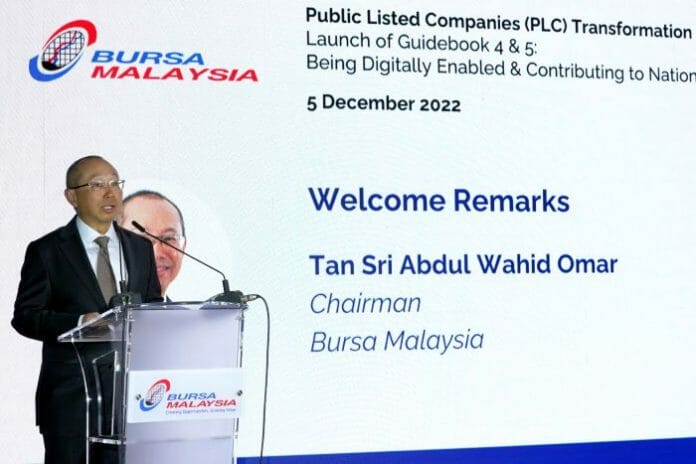Bursa Malaysia Berhad has launched the final two digital guidebooks under the PLC Transformation programme, which will be a reference point for listed companies to become high-performing organisations.
Guidebook 4 “Being Digitally Enabled” highlights the imperatives, opportunities, benefits, and tools for companies to become more digitally enabled. Guidebook 4 focuses on four key areas of being digitally enabled – from Enhancing Customer Experience, Empowering People & Driving Change, Harnessing Operational Efficiencies, to Facilitating Business Model Transformation. While Guidebook 5 “Contributing Towards Nation Building” emphasises how businesses can accelerate their growth while enhancing their value creation to the economy and nation in a myriad of ways. It illustrates the outcomes that can be amplified when there is alignment of agendas, and/or collaboration between the private and public
sector.
“The objective of the PLC Transformation programme is to drive Corporate Malaysia towards greater performance levels and boost the attractiveness of our listed entities,” said Tan Sri Abdul Wahid Omar, Chairman of Bursa Malaysia. “These last two books are timely. The two-year COVID-19 pandemic demonstrated how digitally enabled and agile businesses not only survived but thrived amid difficult times. Furthermore, in the current period of economic revival, businesses must accelerate efforts for growth. Listed companies should also contribute to nation-building in an inclusive manner.”
To date, more than 100 PLCs have committed to participate in the PLC Transformation programme. Although the PLC Transformation Programme is not prescriptive, the efforts and progress of these PLCs will be broadly monitored via a digital dashboard for benchmarking and to encourage the adoption of best practices.
All five digital guidebooks are now available for download on the Bursa Malaysia website, as a resource for all PLCs and even private companies, especially SMEs. The first Guidebook focused on building purpose and performance-driven organisations, the second was on sustainable, socially responsible and ethical practises, and the third guidebook was on strengthening stakeholder management and investor relations.







